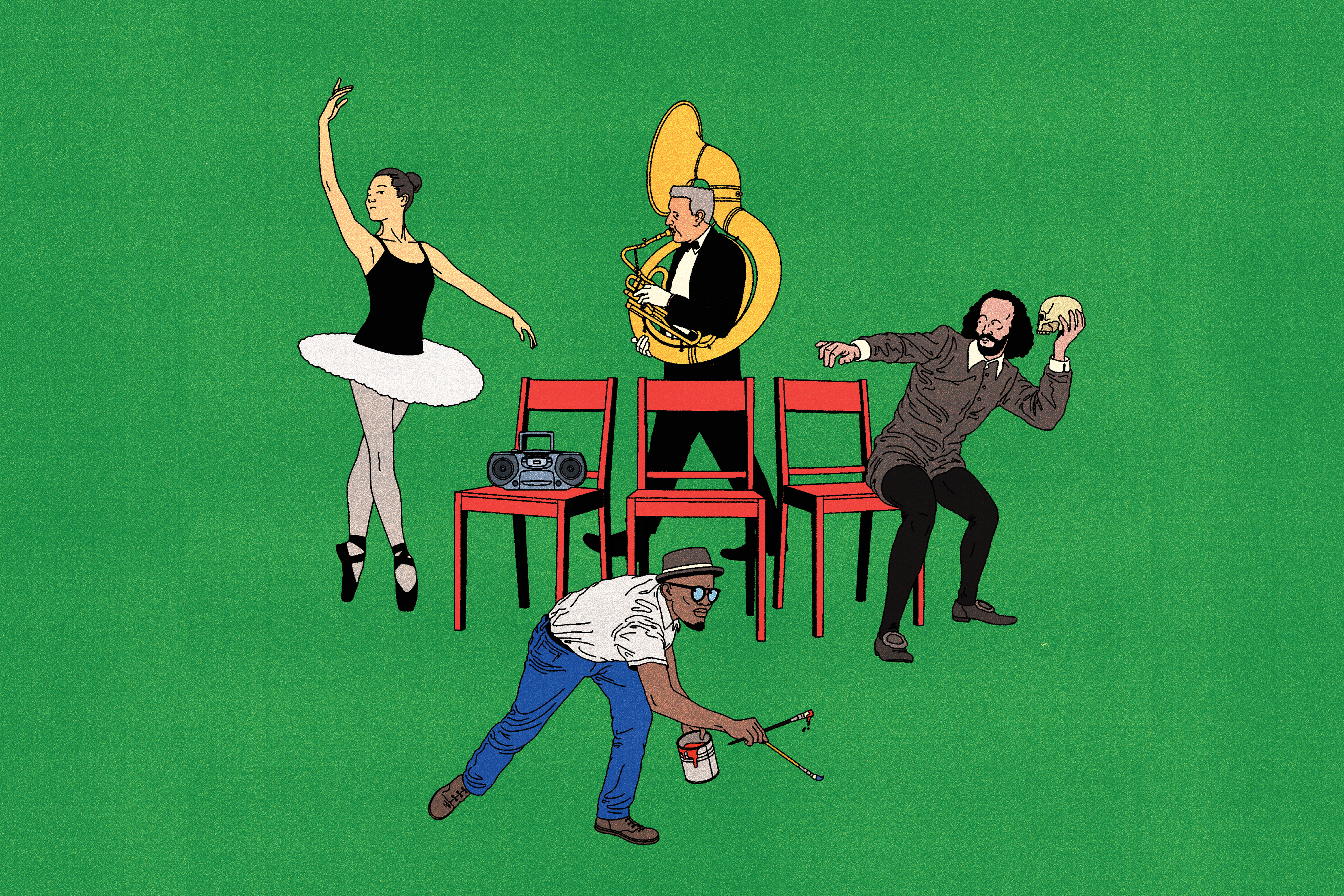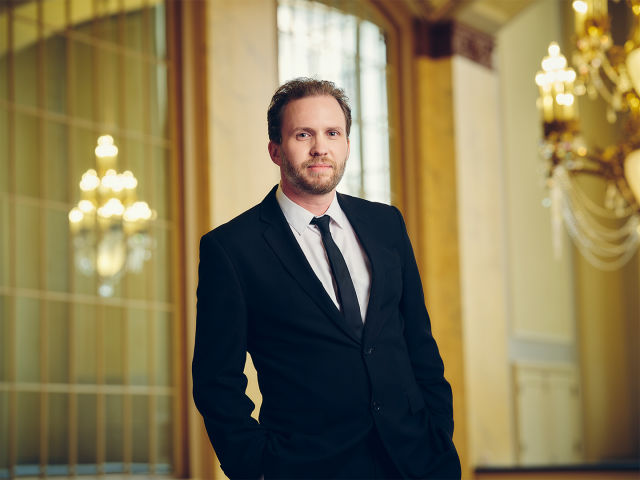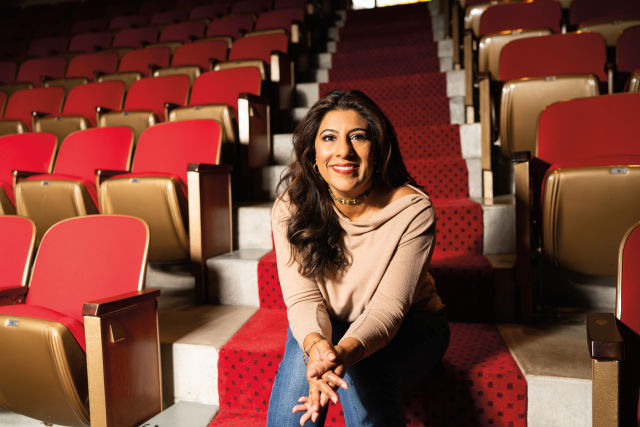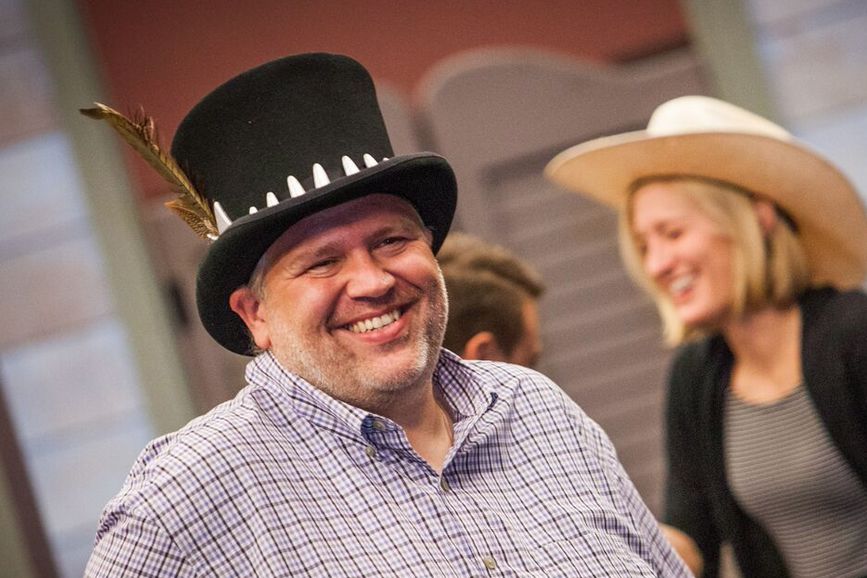
Portland’s Arts Scene Is Undergoing a Massive Changing of the Guard
If it’s true that the more things change, the more they stay the same, then Portland’s cultural ecosystem is in for a lot of same old, same old. Since 2021, the Oregon Ballet Theatre, Portland Opera, Oregon Symphony, Regional Arts & Culture Council, and Artists Repertory Theatre have all seen shakeups at the highest levels of artistic leadership—and those are just the heavy hitters. Toss in handovers at smaller organizations like Corrib Theatre and the Portland Actors Conservatory, plus a pandemic (perhaps you’ve heard?), and it’s hard not to see 2022 as a major fork in the road for Portland’s arts ecosystem.

The Oregon Symphony's new music director, David Danzmayr
Image: Courtesy Nashco Photo
At several companies, like Artists Rep and Oregon Symphony—which named Austrian conductor David Danzmayr its new music director in February 2021—the shifts are the result of long tenures meeting their natural ends. At some, like OBT—where questions remain about artistic director Kevin Irving’s sudden departure last summer—there are hints of inner turmoil. Across the board, though, the sturdiest pillars of the Rose City’s creative sector face a pair of urgent questions: Who will lead us into the future? And how should they go about it?
“All of us want to create space for understanding what’s going on in our world,” says J. S. May, executive director of Artists Repertory Theatre. “If you believe contemporary art reflects the issues of the time, that’s what you’re trying to do.” Last fall, Dámaso Rodríguez announced he would step down as Artists Rep’s artistic director, after nine years in the position. He was only the second AD in the company’s four-decade history.
Spurred by the racial reckonings of 2020, and by the fact that Rodríguez was the first Latino AD of a company that belonged to the nationwide League of Resident Theaters, May highlights diversity, equity, and inclusion efforts as a guiding light in the artistic director search. “It’s hard for me to imagine this won’t be someone who really understands the kind of work we do,” he says, “which is giving voice to playwrights who typically haven’t been part of American theater.” In a rich twist, ART has hired the Arts Consulting Group, a local search and strategic planning firm—which also happens to be Rodríguez’s new employer—to aid in their hiring process, which they expect to wrap by summer. (Rodríguez does not work in ACG’s executive search division.)
Similar sentiments have swirled around the Portland Opera since former general director Christopher Mattaliano stepped down amid money troubles in 2019. Sue Dixon, the company’s former development director, assumed his role that October, with the understanding that she would focus on strategic planning and finance, and the company would hire a separate artistic director for programming. (Mattaliano, by contrast, did all of the above.) The pandemic briefly brought that search to a halt, but also offered the company an opportunity to consider what it really wanted out of an AD, and how to go about finding one.
Unlike Artists Rep, Portland Opera chose not to hire a search firm. “Historically, they go after a certain type of artist, and we wanted to open ourselves up to lots of different ideas,” Dixon says. They posted the position on search engines and asked for recommendations from other general directors, pointedly seeking someone who cut against certain leadership archetypes. “I think on the job description, I actually said, ‘Egos need not apply,’” Dixon remembers with a laugh.

Priti Gahndi, artistic director of Portland Opera
Image: Courtesy Christine Dong
In June, the company landed on Priti Gandhi, a former opera performer who’s been in arts admin since 2013. Initially reluctant to make the switch from artist to administrator, Gandhi was convinced by the opportunity to advocate for performers from the inside, and has spent her recent career focused on lifting opera singers from “the bottom of the power structure.” When hiring personnel and negotiating contracts, she draws on her own experiences with abusive collaborators and crushing debts. In Portland, she says she hopes to “cultivate a love of the traditional art form while bringing in new composers, new creators, new stories, not just of this community and the people who live here, but of diverse communities.” A guiding question, she says, is, “How are we going to expand the operatic art form so it continues to look like an art form of today, as well as of the past?”
Philosophically, there are echoes of Gandhi’s sentiments in Danzmayr’s first year at the symphony. His programming so far has presented canonized works beside less-played folk pieces, in an attempt to close the gap between cultures and generations. Right out of the gate, he established a sort of artistic think tank meant to help him shape programming called the Creative Alliance, whose members include contemporary classical composer Gabriela Lena Frank and vocalist-composer Nathalie Joachim.
When Dixon came into her role, she says she and her contemporaries were hopeful they’d move the needle toward the kinds of change—in leadership and in programming—that 2020’s racial reckonings ended up bringing to the fore.
“I think many of us came into these jobs with really high expectations of being the leader that really transforms,” she says. Then their jobs became about keeping heads above water and money in the bank during two of the worst years for the arts in modern history. Maybe, then, this midpandemic baton handoff (over the summer, Danzmayr’s predecessor Carlos Kalmar literally handed him a baton at a symphony waterfront concert) offers an opportunity to rekindle some of that optimism.
“If you look at the history of Portland in the arts, John and Lucy Buchanan left the museum and Brian [Ferriso] came in. For a while there, everybody was named Chris,” says May. (That’s Coleman, former AD of Portland Center Stage, the aforementioned Mattaliano, and Stowell, who led OBT for nine years.) “These transitions happen, which actually creates spaces for new voices and new ideas. That’s a good thing.”
Just how good remains to be seen—ART, OBT, and RACC (a quasi-city agency that administers arts grants) are all still operating with interim leaders, and the few who have been selected remain in the infancy of their tenures. But hope isn’t out of the question.
Amid all this change, maybe we can lower our guard.




